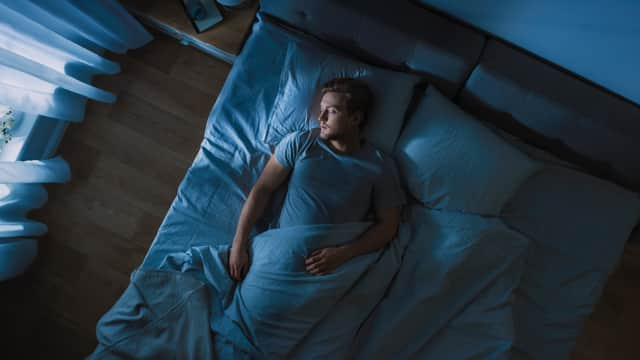Here’s why your dreams are wild and more vivid during lockdown - according to experts
This article contains affiliate links. We may earn a small commission on items purchased through this article, but that does not affect our editorial judgement.


The coronavirus pandemic has seen a change in people's sleep patterns, with many saying they are dreaming more, and remembering more about the dreams that they had that night.
But why are our dreams more wild and vivid in lockdown?
Increase in REM sleep
One of the possible reasons for recalling your dreams now more than ever is getting more sleep.
Advertisement
Hide AdAdvertisement
Hide AdSleeping longer proportionally increases a person’s rapid eye movement (REM) sleep. This is when the most vivid and emotional dreams occur.
A survey conducted by King’s College London in April last year found that 62 per cent of people in the UK are getting the same amount of sleep or more than before the lockdown restrictions came into effect. Mark Blagrove, a psychologist at Swansea University believes this could help people remember their dreams more effectively.
Speaking to New Scientist, Blagrove said: “Lack of work schedules may be allowing individuals to wake up without an alarm clock. Natural wake-ups are known to result in longer dreams.”
Working from home has allowed many to wake up later in the morning, when REM sleep is more prevalent and intense.
Trauma guides dreaming
Advertisement
Hide AdAdvertisement
Hide AdResearch from the University of Helsinki found that there had been an increase in nightmares and dreams with pandemic related themes.
Robert Stickgold, a professor of psychiatry at Harvard Medical School, told the Times that, while we are asleep, the brain takes control, and that trauma may play a part in it.
Stickgold said: “The goal of the dreaming brain is to explore possibilities, to take recent memories or current concerns and wander through them; take them for a spin.
“The dreaming brain has complete control and we are pretty much passive players. You can make little decisions, but the larger story is mostly the brain building it on its own.”
Advertisement
Hide AdAdvertisement
Hide AdStickgold explained that dreaming is made up of small traumas, for example taking an exam or doing a scary recital in front of people. This is why people often have nightmares about similar situations.
Stickgold told the Times that the Covid-19 pandemic has caused a rise in Covid-related dreams because it's still a worry in everyone's minds. Nightmares, he explained, can be formed from smaller levels of trauma.
He added: “It can just be persistently worrying about it, like every time you walk out the door.”